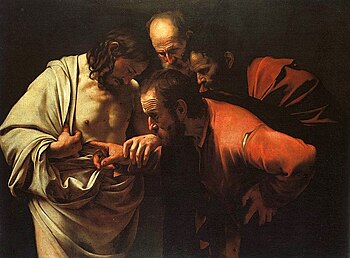III EASTER SUNDAY - Luke 24:13-35
Whenever we read a passage from the gospels, beyond the narrative of Jesus’ words and actions, we must hear the echoes of the Christian Communities for whom they were written. And listening to the passage as being addressed to us, we must allow ourselves to be touched and questioned by the situation described and the words pronounced.
It was on a Sunday - the first day of the week, which would become known as the Day of the Lord, when completed the Passover celebration, two disciples went back to the village, Emmaus, not far from Jerusalem. As they walked, they talked about Jesus who had shown himself to be a “great prophet by the things he said and did in the sight of God and of the whole people”, but “our chief priests and our leaders handed him over to be sentenced to death, and had him crucified”. As they walked, their hearts were heavy with disappointment, since all their hope had been dashed and all dreams a future full of life and salvation were no more than a delusion. It was in such a situation that Jesus started walking with them, even though they did not recognise him.
The journey of those two disciples represents our own journey of faith and the journey of our Christian community. When we go through hard times, we feel at a loss and, unable to look to the future with hope, we try to find refuge in things that have lost their usefulness. And we are going through such a time. The coronavirus pandemic seems to have turned the world upside down and suddenly that many of things we took for granted are not important. We are seized by fear since the future of our lives and our societies seems to be in peril. We may fill lonely and distressed and ask ourselves. where is God? Does He care? However, Jesus is walking by our side, even if we don’t recognise him. And he reassures us as he did to those two disciples.
Walking with them in their life situation, Jesus goes through the Scriptures and with them he gives meaning to what happened. The use of the Scriptures has always been an essential part both of the proclamation of the Gospel and catechesis and then of the liturgical celebration. The word of God challenges us and illumines the darkness of our lives so that we are strengthened in hope and find meaning and purpose for our difficult situations. As they listen to the word of God brought to them by Jesus, the two disciples began to understand and their hearts found peace and joy.
Being at peace with themselves and the situation they found themselves in, they were able to invite Jesus into their house and could sit at the table of the Lord and receive from him the bread of life.
In the journey of those two disciples, we find the journey of the Church. This journey is made meaningful by the word of God, which is proclaimed every Sunday (first day of the week). By that word, we find new hope, so that we may be able to reach the goal of our journey in life. And the word prepares us to receive the bread of life, which the Lord puts on the table for us.
In the journey to Emmaus, we can find the main parts of the mass: a first part dedicated to the word of God and second to the supper of the Lord. It is the proclamation of the word of God in the first part of the mass, that makes possible and meaningful the second part, the breaking of the bread. The first part leads to the second. The word of God prepares us to approach the table of the Lord and to receive him as the Risen Lord who gives us life.
After recognising the Risen Christ, the two disciples could not stay; they had to go and share this good news: indeed, the Lord has risen. The celebration of the Eucharist leads us to the mission. After experiencing the presence of the Lord, we must go to be witnesses and to announce that Jesus is alive and in Him, we can find life and salvation.



